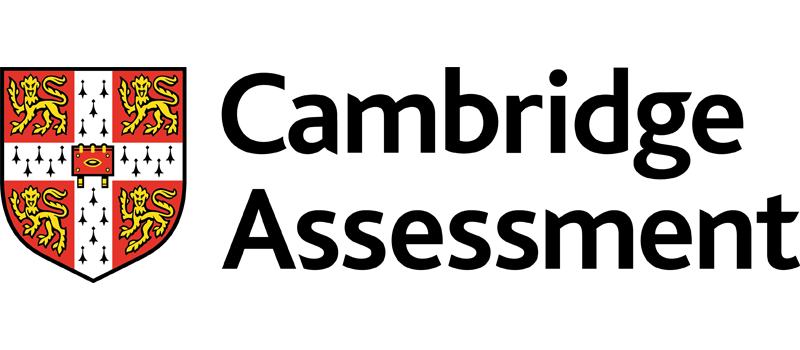
Measuring DEI Success and Accountability
Course ID: 2509220101289ESH
Course Dates : 22/09/25 Course Duration : 5 Studying Day/s Course Location: London, UK
Language: Bilingual
Course Category: Professional and CPD Training Programs
Course Subcategories: Operations and Process Excellence
Course Certified By: ESHub CPD & LondonUni - Executive Management Training
* Professional Training and CPD Programs
Leading to:
Executive Diploma Certificate
Leading to:
Executive Mini Masters Certificate
Leading to
Executive Masters Certificate
Certification Will Be Issued From :
From London, United Kingdom
Course Fees: £5,120.30
Vat Not Included in the price. VAT may vary depending on the country where the course or workshop is held.
Click to Pay
Date has passed please contact us Sales@e-s-hub.com
Course Information
Introduction
Diversity, Equity, and Inclusion (DEI) have become central pillars in shaping organizational culture and driving sustainable success. As workplaces grow increasingly diverse and globalized, organizations are recognizing the need to move beyond performative gestures and toward measurable outcomes that reflect genuine progress. This course is designed to equip professionals with the tools, frameworks, and strategies necessary to assess and enhance DEI initiatives effectively. By focusing on accountability and measurable success, participants will gain a comprehensive understanding of how to align DEI goals with broader organizational objectives.
Despite widespread acknowledgment of its importance, many organizations struggle to implement DEI programs that yield tangible results. A common challenge lies in the lack of clear metrics for evaluating success. Without robust data collection and analysis methods, organizations risk investing resources in initiatives that fail to address systemic inequities or foster meaningful inclusion. This course addresses these gaps by introducing evidence-based approaches to measuring DEI outcomes, drawing from established theories such as the Diversity Iceberg Model and the Equity-Centered Framework. Participants will learn how to identify biases in data collection processes and design interventions that are both impactful and inclusive.
The benefits of mastering this course content extend far beyond compliance or reputation management. For individuals, proficiency in DEI measurement and accountability enhances leadership capabilities, fosters trust within teams, and positions them as champions of change within their organizations. Organizations, on the other hand, stand to gain improved employee engagement, reduced turnover rates, and enhanced innovation through diverse perspectives. A notable example is Salesforce, which implemented rigorous pay equity audits and transparency measures, resulting in significant improvements in workforce satisfaction and retention.
Real-world applications underscore the practical value of this course. Consider the case of a mid-sized tech company grappling with low representation of women in leadership roles. Through targeted DEI assessments and accountability mechanisms introduced during training, they identified structural barriers in promotion practices and implemented mentorship programs. Within two years, the proportion of female leaders increased by 25%, demonstrating the transformative potential of strategic DEI efforts. Such examples highlight the critical role of measurement and accountability in achieving lasting impact.
Industry trends further reinforce the urgency of adopting a data-driven approach to DEI. According to McKinsey’s Diversity Wins report, companies with diverse executive teams are 33% more likely to outperform their peers financially. Yet, bridging the gap between aspiration and action remains a challenge for many. This course empowers participants to translate theoretical insights into actionable strategies, ensuring that DEI initiatives are not only well-intentioned but also effective and sustainable over time.
By delving into cutting-edge methodologies and exploring real-world scenarios, this course offers an unparalleled opportunity to lead change in today's dynamic professional landscape. Whether you are seeking to refine your organization’s DEI strategy or elevate your expertise as a practitioner, this program provides the knowledge and tools needed to drive meaningful progress. Join us to unlock the full potential of diversity, equity, and inclusion in your workplace.
Objectives
By attending this course, participants will be able to:
Analyze key performance indicators (KPIs) for assessing DEI success across various organizational levels.
Evaluate existing DEI policies and practices using industry-standard frameworks and diagnostic tools.
Design tailored measurement systems to track progress and ensure accountability in DEI initiatives.
Implement corrective actions based on data-driven insights to address identified gaps in equity and inclusion.
Apply advanced analytics techniques to interpret DEI metrics and communicate findings effectively to stakeholders.
Develop strategies for fostering a culture of accountability and continuous improvement in DEI efforts.
Synthesize legal and ethical considerations related to DEI reporting and compliance requirements.
Who Should Attend?
This course is ideal for:
HR managers and directors responsible for implementing DEI strategies within their organizations.
Team leaders and supervisors seeking to promote inclusivity and fairness in their teams.
Consultants and advisors specializing in organizational development and transformation.
Educators and trainers focused on creating equitable learning environments.
These groups will find the course valuable due to its emphasis on practical, actionable insights that can be directly applied to their roles. The curriculum is structured to accommodate intermediate learners who possess foundational knowledge of DEI concepts but wish to deepen their expertise in measurement and accountability. Advanced practitioners may also benefit from refining their skills and staying abreast of emerging trends and best practices.
Training Method
• Pre-assessment
• Live group instruction
• Use of real-world examples, case studies and exercises
• Interactive participation and discussion
• Power point presentation, LCD and flip chart
• Group activities and tests
• Each participant receives a 7” Tablet containing a copy of the presentation, slides and handouts
• Post-assessment
Program Support
This program is supported by:
* Interactive discussions
* Role-play
* Case studies and highlight the techniques available to the participants.
Daily Agenda
Daily Schedule (Monday to Friday)
- 09:00 AM – 10:30 AM Technical Session 1
- 10:30 AM – 12:00 PM Technical Session 2
- 12:00 PM – 01:00 PM Technical Session 3
- 01:00 PM – 02:00 PM Lunch Break (If Applicable)
- Participants are expected to engage in guided self-study, reading, or personal reflection on the day’s content. This contributes toward the CPD accreditation and deepens conceptual understanding.
- 02:00 PM – 04:00 PM Self-Study & Reflection
Please Note:
- All training sessions are conducted from Monday to Friday, following the standard working week observed in the United Kingdom and European Union. Saturday and Sunday are official weekends and are not counted as part of the course duration.
- Coffee and refreshments are available on a floating basis throughout the morning. Participants may help themselves at their convenience to ensure an uninterrupted learning experience Provided if applicable and subject to course delivery arrangements.
- Lunch Provided if applicable and subject to course delivery arrangements.
Course Outlines
Foundations of DEI Measurement
Understanding the principles of diversity, equity, and inclusion.
Exploring the Diversity Iceberg Model and its implications for measurement.
Identifying common challenges in DEI assessment.
Reviewing case studies of successful DEI measurement frameworks.
Day 2:
Data Collection and Analysis Techniques
Learning best practices for collecting demographic and experiential data.
Applying statistical methods to analyze DEI metrics.
Recognizing and mitigating biases in data interpretation.
Utilizing software tools for streamlined data management.
Day 3:
Accountability Mechanisms and Reporting
Establishing clear accountability structures for DEI initiatives.
Developing transparent reporting protocols for internal and external stakeholders.
Aligning DEI goals with organizational mission statements and KPIs.
Addressing legal and ethical considerations in DEI reporting.
Day 4:
Practical Applications and Corrective Actions
Conducting root cause analyses to identify systemic inequities.
Designing targeted interventions to address specific DEI challenges.
Monitoring and adjusting strategies based on ongoing feedback loops.
Sharing lessons learned from real-world implementation scenarios.
Day 5:
Sustaining Long-Term Impact
Building a culture of continuous improvement in DEI efforts.
Engaging employees at all levels in accountability processes.
Leveraging technology and innovation to enhance DEI measurement.
Creating a roadmap for future growth and scalability of DEI initiatives.



















































